7 reasons Liz Truss as prime minister is terrifying for LGBTQ+ people
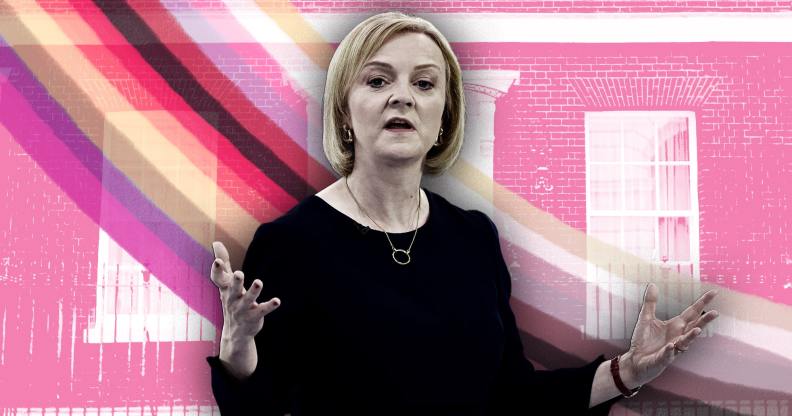
Liz Truss resigned as Britain’s prime minister in October 2022. (Getty)
Liz Truss has been announced as the UK’s next prime minister – and it’s a devastating result for LGBTQ+ people.
Truss emerged as an early frontrunner months ago as Boris Johnson’s political scandals racked up – she was seen as an experienced successor who would have no problem winning broad support from her party.
There was little surprise on Monday (5 September) when Sir Graham Brady, chairman of the 1922 Committee of backbenchers, announced that Truss had beaten her opponent Rishi Sunak to become the next Conservative Party leader.
The news, while widely expected, will undoubtedly be met with some worry from LGBTQ+ advocacy groups. Throughout the leadership race, both Truss and Sunak have claimed that trans women aren’t women, while Truss has expressed concern about gender affirming care for minors.
There’s also her record as minister for women and equalities to contend with – during her time in the brief, Truss scrapped Gender Recognition Act (GRA) reform. She also failed to ban conversion therapy in any way, shape or form, despite numerous promises to do so.
As Truss steps into the prime minister’s shoes, we bring you seven reasons her leadership is a worrying concept for LGBTQ+ people.
1. Liz Truss ‘pandered to bigots’ during the leadership race
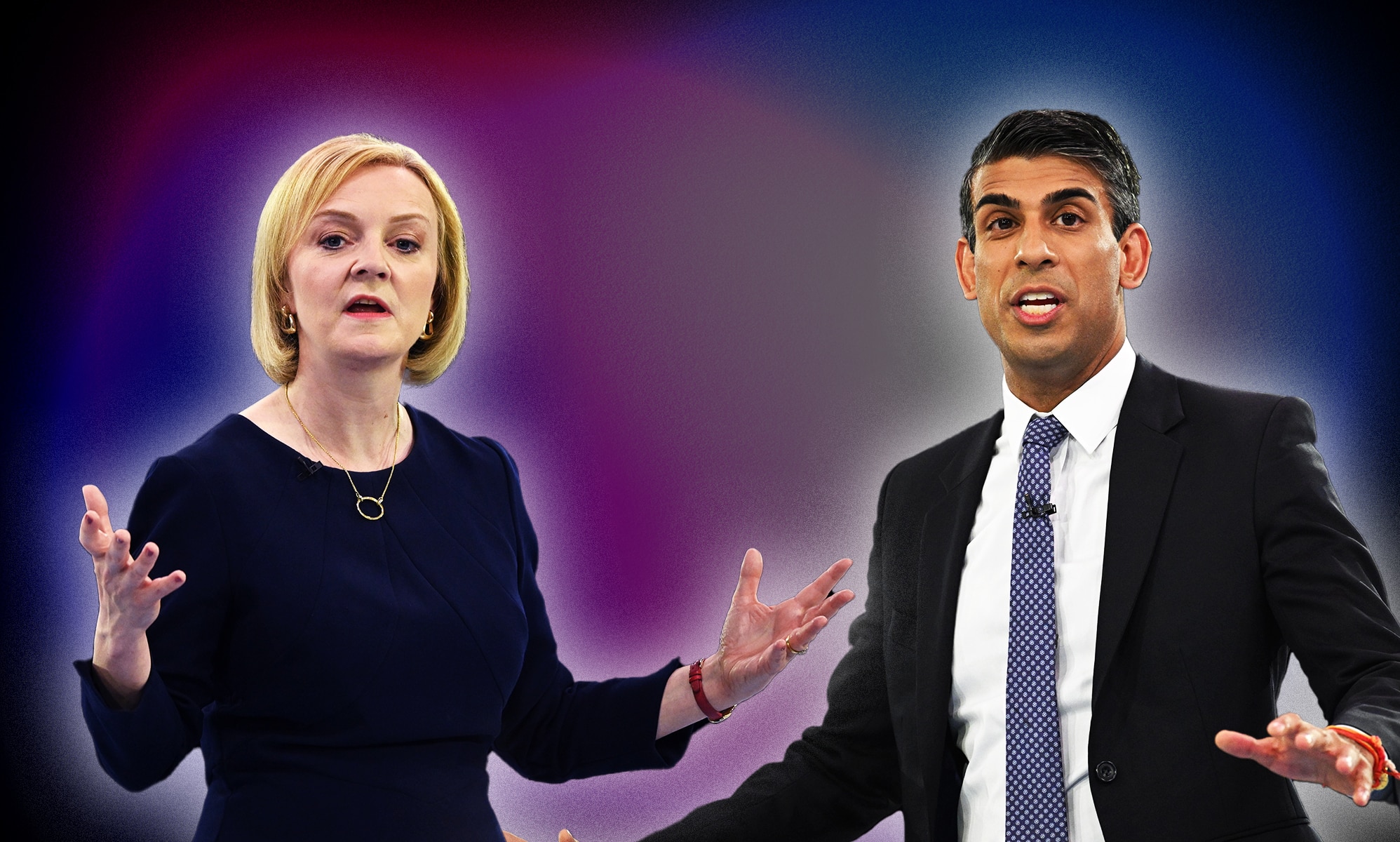
Liz Truss and Rishi Sunak. (Getty/PinkNews)
Trans rights quickly emerged as a hot topic in the Tory leadership race – candidates such as Suella Braverman and Penny Mordaunt staked their campaigns on their anti-trans views, while Sunak signalled early on that he would ban trans women from competing in sports if he became the next prime minister.
Meanwhile, Liz Truss seemed to be doing her best to stay quiet on LGBTQ+ issues. Notably, she failed to answer questions from LGBT+ Conservatives – which her fellow candidates answered – and she initially appeared to do her best to focus on the economy and taxes over trans issues.
That didn’t last too long – in a hustings on 25 August, both Truss and Sunak denied that trans women are women. Speaking about gender affirming care for minors, she said under-18s “shouldn’t be able to make irreversible decisions about their own future”.
Both she and Sunak were later accused of “pandering to bigots” by former Tory MPs who spoke to PinkNews on the condition of anonymity.
One former minister said: “I’m appalled that all the effort we put into changing the party on LGBT issues over the years has been trashed in a few weeks.”
2. Truss continually hits out at ‘identity politics’
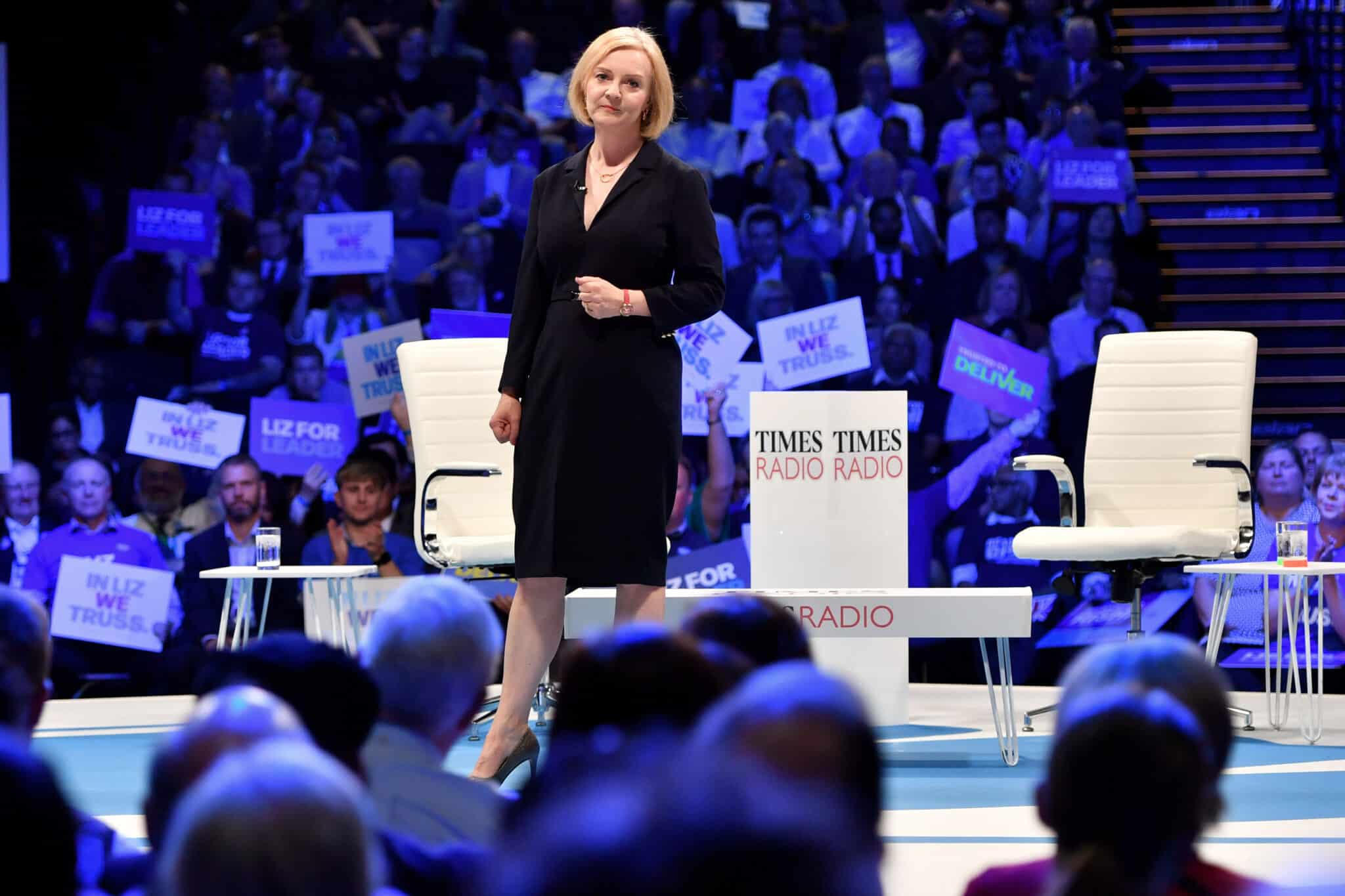
Foreign Secretary and Conservative leadership hopeful Liz Truss speaks on stage on August 23, 2022. (Anthony Devlin/Getty)
In 2019, shortly after she became minister for women and equalities, Liz Truss promised that she would move away from the “identity politics” of the left.
“We’ve got to get away from this idea that somebody should be appointed to a job because of – no one wants to be the token woman, you don’t want to feel like you’ve been appointed to a job because you’ve got boobs,” she said on talkRADIO at the time.
“Likewise, no one wants to be the token gay person. I think that we need to think differently about this.”
She was widely mocked on social media when she suggested the women and equalities office should be renamed the “Ministry of Freedom”.
Truss has continued on that trajectory ever since. She has consistently borrowed from the Boris Johnson playbook in her attacks on “woke” culture.
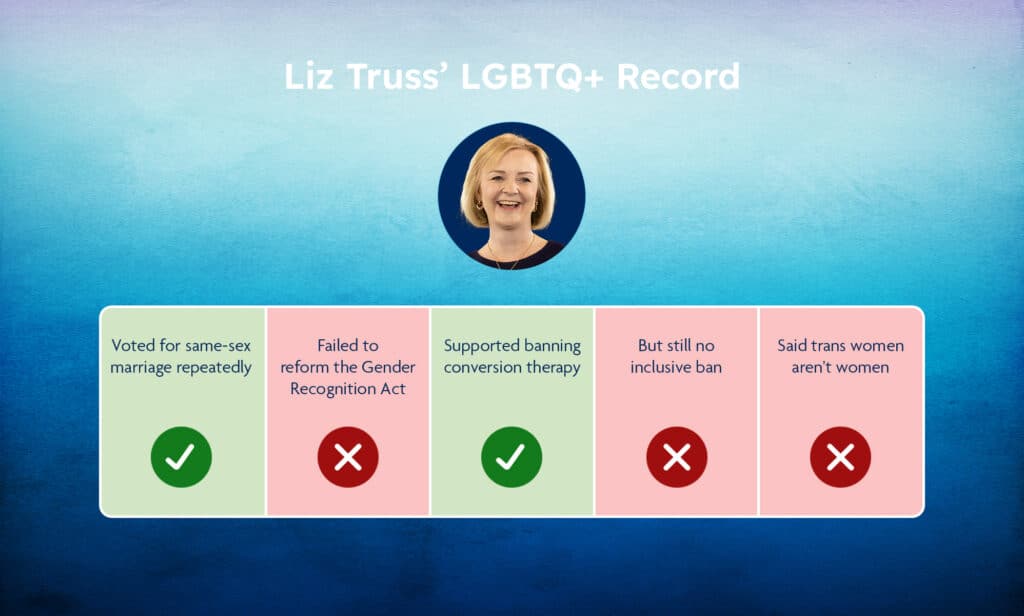
Liz Truss’ record on LGBTQ+ rights. (PinkNews/Getty)
In a column published in December 2020, Truss claimed that efforts to advance the rights of minority groups amounted to people jumping on the “woke bandwagon”.
The bizarre article saw her hitting out at the “woke brigade” which she said is more concerned about the “sins of historical figures” than it is interested in improving life for people around today.
It’s likely that Truss has known for some time that positioning herself as central to the Tories’ “war on woke” would help garner some support within the party.
3. Her failure to deliver on gender recognition reform remains one of her biggest letdowns
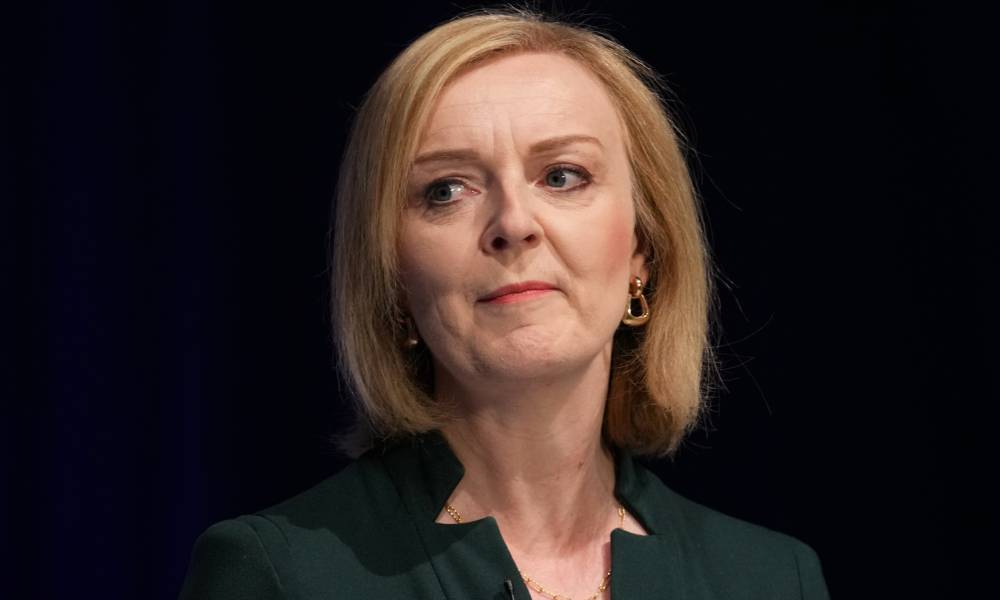
Liz Truss. (Getty/Carl Court)
There was widespread disappointment in September 2020 when Liz Truss announced that she would not be meaningfully reforming the Gender Recognition Act (GRA).
The decision was particularly baffling considering just how much time and energy the government had invested in its public consultation on the subject. It had been widely accepted by LGBTQ+ groups and activists for some time that the GRA, which was enacted in 2004, was outdated and in desperate need of reform.
One of the big issues on the table was self identification. If adopted, self-ID would have allowed trans people to change their legal gender without having to obtain a diagnosis of gender dysphoria from a medical professional, and without answering invasive and often degrading questions about their gender.
The change was fiercely contested by a small but vocal group of anti-trans feminists – and Truss and her government colleagues apparently listened. In the end, they reduced the cost of legal gender recognition and digitised the process. Other reforms that would have actually made life easier for trans and non-binary people were scrapped.
The government’s failure to reform the GRA was criticised in December 2021 by the Women and Equalities Committee, which is chaired by Tory MP Caroline Nokes. The group called on the equalities office to remove the requirement for a gender dysphoria diagnosis by 2023, along with a series of additional recommendations.
It remains to be seen whether Truss will heed that recommendation as prime minister.
4. Liz Truss favours ‘medical checks’ for trans people who want to legally transition
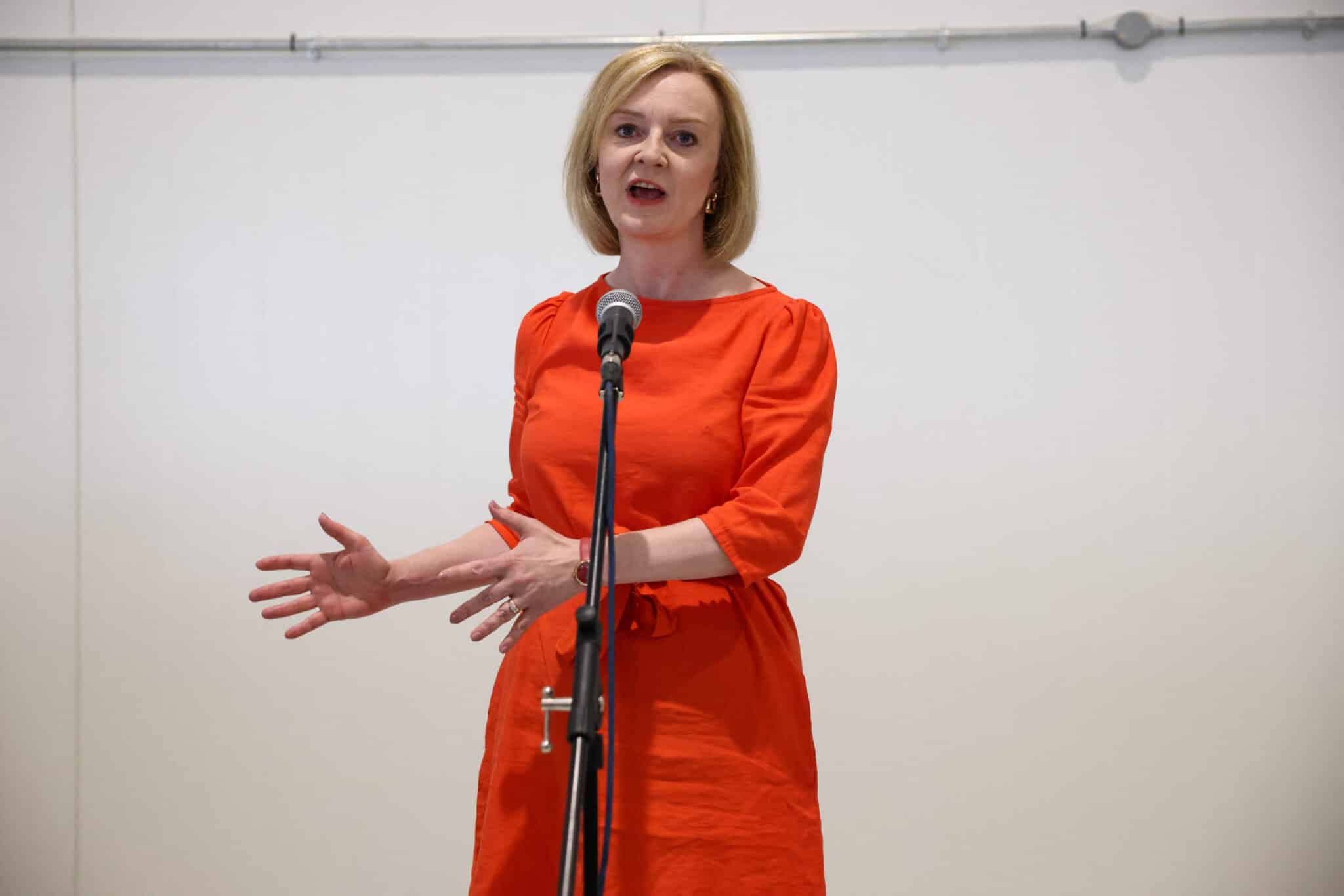
Conservative leadership candidate Liz Truss. (Henry Nicholls – Pool/Getty Images)
It was in October 2021 that Truss made it abundantly clear that she opposes self-identification – and that she favours a model whereby trans people must prove they are who they say they are before being granted legal recognition.
Speaking at the Conservative Party conference, she said: “It wouldn’t be right to have self-identification with no checks and balances in the system.
“It is clear process of medical understanding of how that process works, and those medical checks are important.”
Truss said she has “full respect for transgender people”. However, she also said that she agrees with Labour MP Rosie Duffield, who said that “only women have a cervix”.
“[Roșie Duffield] is right that women have cervixes,” she said. “But more than that, she’s also right to be able to express her view… when we try and brush things under the carpet and can’t have an open, honest and sensible debate, I think that’s a huge problem for British politics.”
5. Her response to the LGBT Advisory Panel fallout cemented her anti-LGBTQ+ credentials
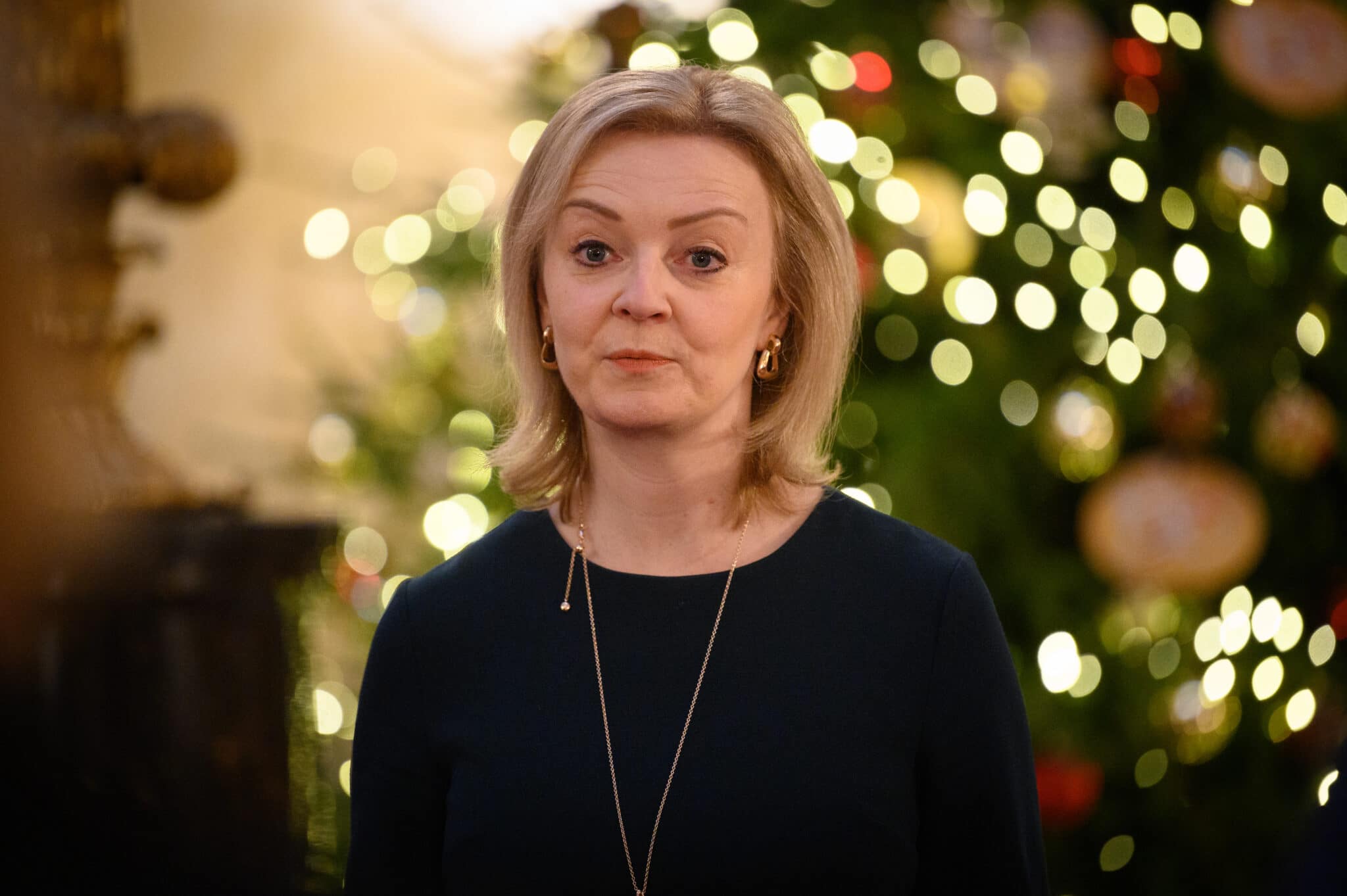
Liz Truss, the UK’s minister for women and equalities. (Leon Neal/Getty)
In April 2021, the government confirmed that it had disbanded its own LGBT Advisory Panel after a number of members resigned.
The furore first erupted in March 2021 when Jayne Ozanne, an anti-conversion therapy campaigner and a member of the panel, sensationally resigned, citing a hostile environment for LGBTQ+ people. In the days that followed, other members of the panel resigned.
The government responded by formally disbanding the LGBT Advisory Panel in April. Liz Truss wrote to the remaining nine members to thank them for their service. She promised that a new panel would be formed, but nine months on, nothing has materialised.
It was a disappointing moment for LGBTQ+ people who still harboured hope that the government would turn things around and improve life for queer people in the UK.
6. Truss has failed to ban conversion therapy
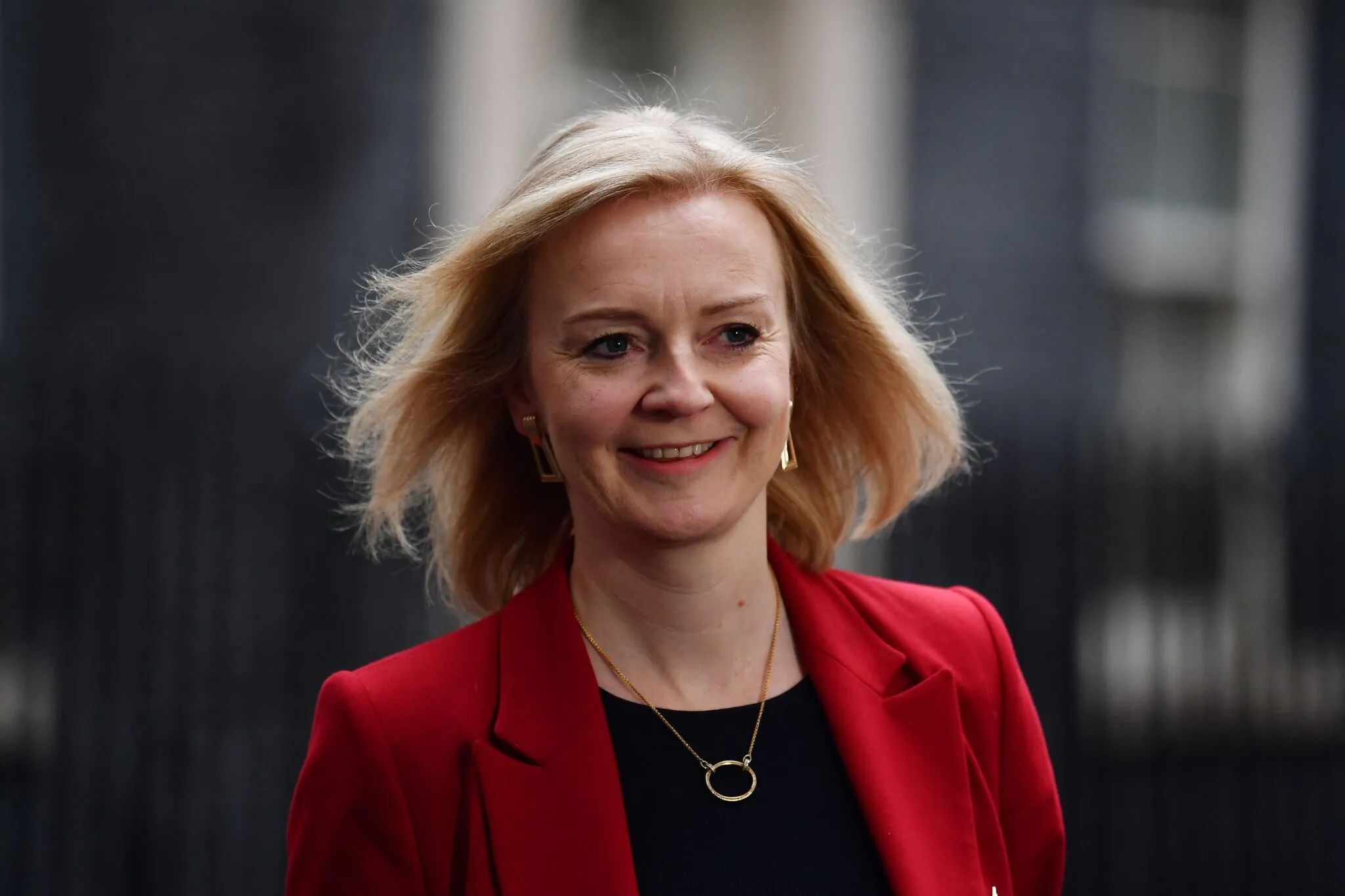
Britain’s equalities minister Liz Truss leaves Downing Street. (BEN STANSALL/AFP via Getty Images)
Liz Truss has failed LGBTQ+ people on numerous occasions, but one of her biggest missteps has been her failure to ban conversion therapy.
The pseudoscientific, traumatising practice is still legally permissible in all regions of the UK despite repeated mumblings from Truss and others in the equalities office about plans to bring forward legislation.
It has now been more than three years since the Conservative government first pledged to ban conversion therapy. Since then, government ministers have repeatedly failed to deliver on their promise.
Truss’ office has dragged its heels on the issue for years. Officials have repeatedly said they were busy conducting research, but that research appears to be never-ending. In 2021, the equalities office once more said it plans to ban conversion therapy – but it said it would be engaging in a consultation process first.
The controversy continued to deepen after Downing Street went over Truss’ head and announced that it would be excluding trans people from the legislation. Johnson ultimately resigned before any ban was brought forward.
It’s still not entirely clear where Truss stands on conversion therapy. She has given numerous conflicting views over the years, so it’s anybody’s guess whether there will be any progress on a ban under her leadership.
7. Liz Truss’ appointments to the equalities watchdog have raised concerns
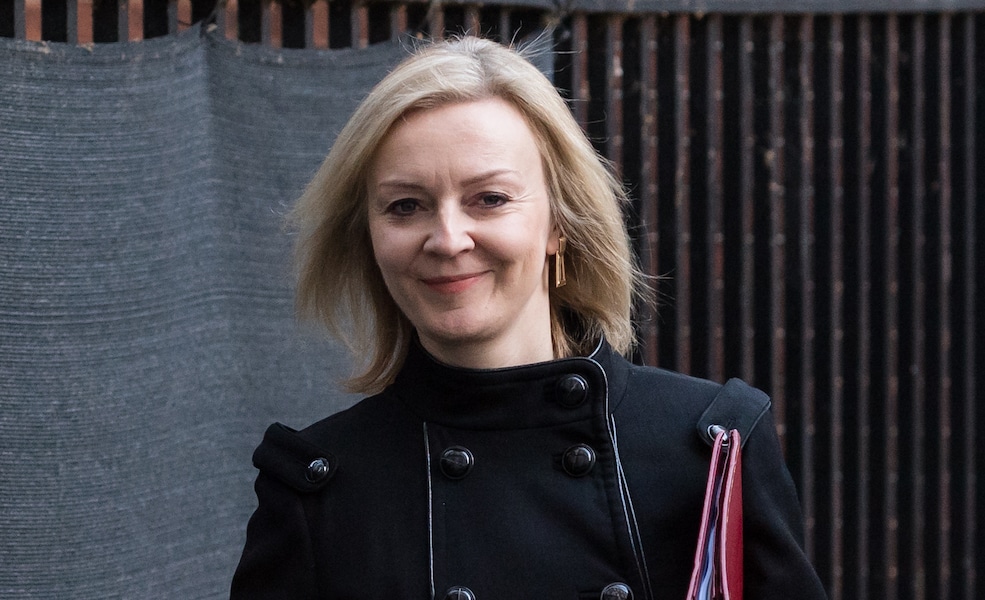
Liz Truss believes people can consent to conversion therapy. (Anadolu Agency via Getty/ Wiktor Szymanowicz)
During her time as equalities minister, Truss had the power to appoint new commissioners to the board of the Equality and Human Rights Commission (EHRC), an ostensibly independent body that “promotes and upholds” equality law across England, Scotland and Wales.
She used that power to make two appointments that caused worry in the trans community.
In November 2020, Baroness Kishwer Falkner was named chair of the EHRC, and promptly said that her watchdog would protect “freedom of belief”, including “gender critical” beliefs, and that it is “entirely reasonable” to question trans people’s gender identity.
In December 2021, Truss appointed the barrister Akua Reindorf to the board of the Equality and Human Rights Commission. Reindorf is known in the community for her review of the “de-platforming” of two anti-trans speakers at the University of Essex, which was highly critical of Stonewall’s trans inclusion advice.
Both Falkner and Reindorf will remain in the EHRC even after Truss leaves the equalities office, meaning her decisions could continue to have ramifications for years to come.

